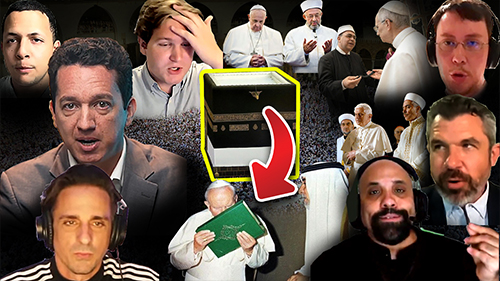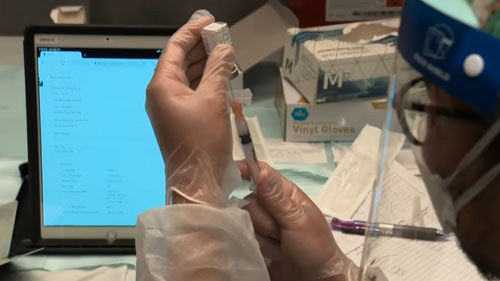| Recent Featured Videos and Articles | Eastern “Orthodoxy” Refuted | How To Avoid Sin | The Antichrist Identified! | What Fake Christians Get Wrong About Ephesians | Why So Many Can't Believe | “Magicians” Prove A Spiritual World Exists | Amazing Evidence For God | News Links |
| Vatican II “Catholic” Church Exposed | Steps To Convert | Outside The Church There Is No Salvation | E-Exchanges | The Holy Rosary | Padre Pio | Traditional Catholic Issues And Groups | Help Save Souls: Donate |  |









 " />
" /> " />
" /> " />
" /> " />
" /> " />
" />




Quotes to Refute Radical “Traditionalist” Schismatics
Compiled by Bro. Peter Dimond, O.S.B.
DEFINITION OF SCHISM
QUOTES WHICH PROVE THAT ALL BAPTIZED INFANTS ARE SUBJECT TO THE ROMAN PONTIFF
The Catholic Church teaches that the baptized infants of heretics are actually Catholics, even though these infants are baptized by heretics in a heretical church building and are taken to the heretical church every week.This is de fide. It is de fide that all baptized infants without exception who die go straight to the “eternal fatherland” (heaven). So, infants born to heretics or schismatics and baptized by heretics or schismatics, and present in a heretical church building which contains heretics, are actually Catholics. Anyone who denies this is a heretic.WHEN DO BAPTIZED INFANTS, WHO ARE BORN TO HERTICAL OR SCHISMATIC PARENTS, LOSE SUBJECTION TO THE ROMAN PONTIFF AND/OR THE CATHOLIC FAITH AND THUS CEASE TO BE CATHOLIC?
A baptized person who has the Catholic faith, as a baptized infant does, can only cease to be Catholic through heresy, schism or apostasy.QUOTES ON THE TRINITY AND THE INCARNATION AS THE TWO MYSTERIES OF FAITH WHICH MUST BE POSITIVELY KNOWN BY ALL ABOVE REASON TO BE SAVED
Notice that this dogmatic creed declares that the Catholic faith, in terms of its simplest components (i.e. what you would absolutely have to tell every man above reason without exception before baptism and so that he could be saved and have the Catholic faith) is the Trinity and the Incarnation. No other dogma can be rejected, of course, but these are the only two which must be positively known by all above reason. Notice that this dogmatic creed uses the phrase “whoever wishes” or wills to be saved, indicating that it is speaking of those above reason. Below we see that the Holy Office under Pope Clement XI responded that a missionary must, before baptism, explain these absolutely necessary mysteries to an adult who is at the point of death. Another question was posed at the same time and answered the same way. The same truth is taught by St. Thomas Aquinas. Notice that no other mysteries are mentioned as absolute necessities of means for all above reason. Here is another Holy Office Decree reflecting the same truth: Athanasius is not denying that the Church was founded upon St. Peter; he is rather illustrating that the principal dogma of the Catholic Faith is the Trinity, which is bound up with the Incarnation and Our Lord’s Divinity as the Son of God. Thus, again and again we see that the Trinity and the Incarnation are shown to be the Catholic Faith in terms of its simplest mysteries and the mysteries that no one above reason can be ignorant of and be saved. It should now be well established that not all aspects or dogmas of the Faith must be known by all above reason, but only the Trinity and the Incarnation are absolutely necessary for everyone above reason to know without any exceptions or excuses for ignorance. The point here is that these two mysteries stand in a unique position among Catholic dogmas. No other Catholic teaching can be rejected without heresy, but these but these are the two which absolutely must be known and believed by all above reason to be Catholic.DEFINITION OF HERESY
Objection: If heresy is only an obstinate rejection of Catholic dogma, what about those who are baptized as infants and taught to deny the Trinity and Incarnation or taught things contrary to them? Are you saying that they could have the Catholic faith because they aren’t aware that the Catholic Church condemns their opinion? Doesn’t this argument prove that people who are raised with false opinions on other matters are also heretics, even if they’re not obstinate against Catholic teaching. Answer: No. As covered already, a person above reason who has a false opinion, which contradicts essential faith in the Trinity and the Incarnation, cannot have the Catholic faith because these two mysteries are uniquely necessary. Knowledge of these two mysteries is absolutely necessary for all those above reason to be saved. So a false opinion about these matters – i..e. false opinions which would destroy faith in these dogmas – necessarily entails heresy, while false opinions on other matters do not unless accompanied by obstinacy. Notice how St. Thomas Aquinas expresses exactly our position on this matter: So if a person has been baptized as an infant, and hits the age of reason in a family where his parents are heretics or schismatics, he can certainly be Catholic, if he has faith in the Trinity and Incarnation and doesn’t obstinately reject any other Catholic teaching. This is proven by the following quotes, as well as logic flowing from the points above. This obviously means that the children above reason who were attending the church of a heretical sect with their parents were not heretics because they were not obstinately against something they knew to be taught by the Church. This is ancient teaching of the Church. And this is exactly what we have said is the position of the Church, and what certain bad willed schismatics have called heretical. This also shows that the unity of the Church is not defined by buildings which are in or not in communion with the Church. If that were true, then an infant baptized in a building that is notoriously heretical and out of communion with the Catholic Church (e.g. a Protestant building) could not become Catholic. Pope Pius XI says here in Ecclesiam Dei that St. Josaphat was born of Eastern Schismatic parents in an area which was separated from the Chair of Peter and acceptance of the Papacy. St. Josaphat was validly baptized as an infant (and thus became a Catholic). As he grew up, he attended the Eastern Schismatic Slavic liturgy with his parents, but was still a Catholic and even “saintly” according to Pope Pius XI. He was a Catholic, even though he was attending a schismatic church building, because he had not obstinately embraced the Eastern Schism by rejecting the Papacy. Thus, his baptism as an infant made him a member of the Church (and subject to the Roman Pontiff) and he did not cease to be a member until he obstinately embraced schism or heresy, which he did not, even though he was attending a schismatic church with his parents. This is a precise articulation of our position on when the baptized children of heretics become schismatics and/or heretics: it is not at the age of reason, but when they obstinately embrace schism or heresy. Certainly St. Josaphat had unusual good will, as proven by the fact that later on as an adult he converted many Eastern Schismatics back to Catholic unity. But this quote, among the other facts, strikes a death-blow to the false position that anyone above reason who attends a church building which would be outside of communion with the Catholic Church is a schismatic and/or heretic. No, it’s when they obstinately embrace the schism or heresy of the leaders of that group and thus become members of that sect by such an obstinate embrace of schism and/or heresy. It should also be noted that those who are above the age of fourteen or so, and attend a notoriously heretical or schismatic church building (e.g. a Protestant or Eastern Schismatic church building where the leading pastor which notoriously and openly rejects the Papacy and/or other Catholic dogmas), are presumed to be obstinate against Catholic teaching. The same presumption could not be made about people who attend a church which professes to be Catholic and professes union with the Papacy (such as the SSPX), but holds false positions about the current issues. With regard to those churches you would have to know what an individual believes and is willing to accept to determine whether or not he is a Catholic or a heretic and/or schismatic. Thus, I have established the following points without a doubt from the teaching of the Catholic Church:Baptized infants are made subject to the Roman Pontiff, not by knowledge of who the Roman Pontiff is, which none of them have, but by their reception of baptism, as Pope Leo XIII teaches above. Baptism is the key component in initial subjection to the Roman Pontiff. An infant’s reception of baptism makes him a subject of the Church and the Roman Pontiff (who has supreme authority in the Church) even in schismatical church buildings until they themselves sever that subjection by heresy or schism.
If they don’t know about any other Catholic dogmas (other than the Trinity and Incarnation), then they are not heretics but Catholics [Christians], unless they hold a position that is incompatible with Faith in the Trinity and Incarnation or deny a truth that all know about God and the natural law or deny something that they know to be clearly taught in Scripture. For instance, if the baptized person described above claims to believe in the Trinity and Incarnation but holds that all religions are more or less good, then he is a heretic and does not have the Catholic Faith (even before he knows that such a position is condemned by the Church) because his belief is incompatible with true Faith in the Trinity as the one true God, which belief he must have to be said to have the Catholic Faith in its simplest components.
Sign up for our free e-mail list to see future vaticancatholic.com videos and articles.
Recent Content
^